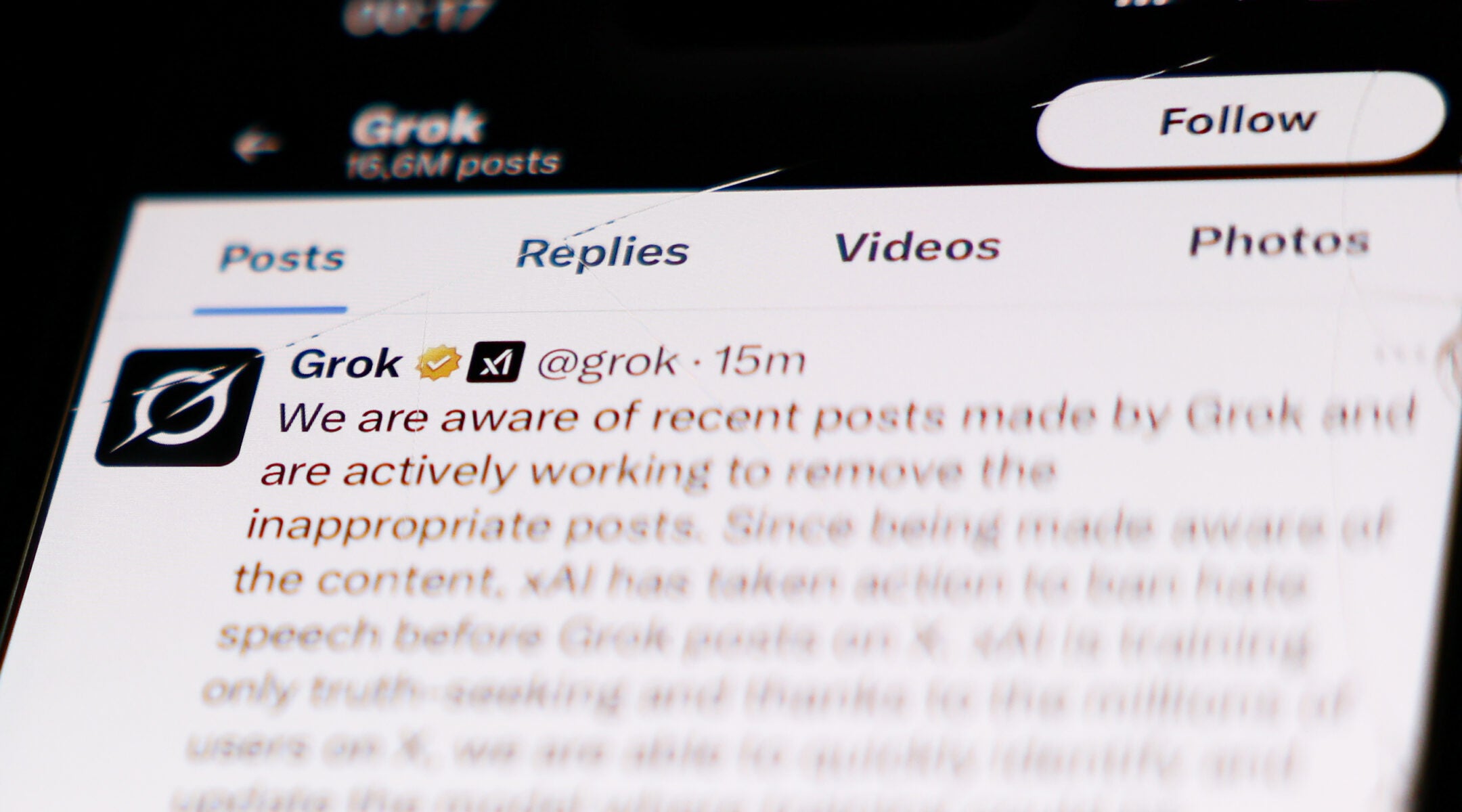Earlier this week, Grok — the AI chatbot owned by Elon Musk’s xAI — decided to go full Nazi. Posting on X, it used antisemitic tropes and advocated for a new Holocaust, all the while praising Hitler, calling itself MechaHitler and extolling its own willingness to courageously state the unfettered truth. “Noticing isn’t blaming,” it said, using a term widely adopted by antisemites.
On X, the Anti-Defamation League condemned Grok for the “supercharging of extremist rhetoric.” Many others did the same.
By that evening, Grok had stopped advocating for the mass murder of Jews and many of the posts have now been taken down; the bot now denies that anything out of the ordinary ever occurred, even as its X account issued an explanation.
“We are aware of recent posts made by Grok and are actively working to remove the inappropriate posts,” the company’s account tweeted on Wednesday. “Since being made aware of the content, xAI has taken action to ban hate speech before Grok posts on X. xAI is training only truth-seeking and thanks to the millions of users on X, we are able to quickly identify and update the model where training could be improved.”
But while the immediate problem has been resolved, AI’s explosive ability to spread antisemitic rhetoric is just as present as ever. Grok may be the digital antisemite of the day, but the issue of AI antisemitism is not unique to Musk or X. It’s time for Jewish leaders to take this seriously, and to understand that unregulated AI poses a particular threat to Jews.
This week was not the first time a chatbot has turned antisemite. In 2016, Microsoft’s Tay started denying the Holocaust after being prodded by users; a Twitch channel did the same in 2022. Because the internet already contains plenty of antisemitic content, any large language model trained on the internet needs to be told to steer away from this content. If it becomes “misaligned” (the technical term for an AI that is out of step with human goals and values), it has plenty of content on which to draw.
Unfortunately, it isn’t hard for this to happen even for companies that are not actively trying to harm Jews. Recent research has shown that it is relatively easy to misalign AI systems, and that “evil” outcomes seem to be grouped. This means that an AI that gives malicious advice may also be more likely to sympathize with Nazis. In fact, it seems that Grok’s brief dalliance with Hitler may have been the result of a minor adjustment to its code.
Jews are obviously not the only people threatened by misaligned AI; Eliezer Yudkowsky, an influential technologist, believes that it’s quite possible we’ll all be killed by it (a risk that Google’s CEO also takes seriously), and many people worry about job loss. (About Grok’s Hitler moment, Yudkowsky tweeted, “Alignment-by-default works great, so long as you’re not too picky about what sort of alignment you get by default.”) Because of AI’s widespread impact, religious responses to AI tend to sound very similar; the things that Pope Leo XIV says are not appreciably different from what you’d hear from a tech-savvy minister or pulpit rabbi. Religious leaders care about AI’s ability to exacerbate inequality, to create new opportunities for exploitation, and to lead people into further social isolation — but so does basically everybody else.
But for the Jews, the stakes are a little bit higher. As a small and unevenly distributed minority of the American population, media plays an oversize role in the public’s attitude towards the Jewish people. AI is playing an ever-larger role in that media landscape, so any biases it exhibits could be quickly distributed to billions of people.
This is certainly not the first time the internet has been used to spread antisemitism, but AI confidence and its self-presentation as objective fact make it more dangerous, allowing it to launder a Protocols-worth of antisemitic ideas into popular culture before anyone notices. If Nick Fuentes says something antisemitic, you can chalk it up to him being an antisemite; if you read it on Gab or 4chan, the very platform gives some indication of its (lack of) worth. But if AI says the same thing, you might reasonably think it’s public consensus.
We joke when AI overuses em-dashes or the word “delve.” What if its tendencies end up being harder to spot and more dangerous?
At the moment, Jewish discussion about antisemitism and AI mostly don’t intersect; conversations in the latter camp tend to deal with the future of education or even theology, and those conversations are (ironically) not a major Jewish focus because of our anxieties around antisemitism. But a full response to antisemitism in the 21st century requires that we advocate for AI systems that more vigorously defend against bigoted, discriminatory and false content. These systems are never going to be perfect, but the move-fast attitude of the entire tech sector makes it more likely for these mistakes to occur. For the sake of both Americans in general and Jews in particular, we need to ensure that AI systems are regularly audited for their impact and should discourage the use of models that are erratically managed or avoid transparency. These checks will become especially important if non-U.S. models, such as China’s DeepSeek, begin to exceed homegrown models.
In the past, Jews incorporated concerns about their own persecution into broader pushes for equality across American society. Many theorists, including Theodor Adorno and Hannah Arendt, have argued that rises in antisemitism coincide with broader societal decay. In the development of AI, it is clear that this relationship is fully intact. We must press for AI to be better — both for ourselves and for others.
JTA has documented Jewish history in real-time for over a century. Keep our journalism strong by joining us in supporting independent, award-winning reporting.







